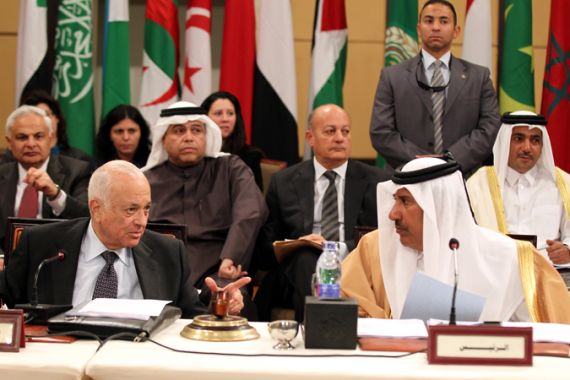
Is it time to increase the pressure on Syria?
As the Arab League meets to review its Syria mission, we ask what its next move should be.
The Arab League’s 165-person mission to Syria came to an end on Thursday, amid much condemnation and continuing violence.
|
“I think it was an important concession by the Syrian regime to allow this monitoring force in, but [it] … could only achieve so much.” – Anoushka Kurkjian, a Middle East analyst |
More than 400 protesters have been killed while the observers were in the country.
The team of monitors is preparing to submit its report to the Arab League in Cairo, where the foreign ministers of the League will meet on Sunday to discuss their next move.
They have a number of options available, including calling an end to this monitor mission entirely.
|
“There were a limited number of observers. We’re talking about [a] maximum of 160 at a time. This is for a country of 23 million so if we are talking about a serious fact-finding mission, we should have thousands of monitors …. A lot of them were not well-equipped and trained.“ – Najib Ghadbian from the Syrian National Council |
They could also send the monitors in for another month or even decide on something a little more aggressive, as recently suggested by the Emir of Qatar, who floated the possibility of sending peacekeeping troops into Syria to try to calm the situation and, as he put it, “to stop the killing”.
On this episode of Inside Syria we ask: Is it time to increase the pressure on Damascus? And which of the options available to the Arab League are feasible and which are desirable?
To discuss this we are joined by: Najib Ghadbian, a professor of political science at the University of Arkansas and a member of the general secretariat of the Syrian National Council; Anoushka Kurkjian, a Middle East analyst specialising in the Gulf, Syria and Lebanon; and Bassam Abu Abdullah, a political analyst from Damascus University and a former Syrian diplomat.
And below is what Nadim Houry of Human Rights Watch said about the Arab League mission in Syria:
“First of all, it’s very important for the Arab League’s credibility. We don’t know what they have been doing for a month, what have they seen, what have they done, what criteria? There’s been a complete lack of transparency … so I think it is very important now for the Arab League to show that it’s not being manipulated by the Syrian government and that it will report on what it has seen. Secondly, it’s very important to deter further violations inside Syria.”
Arab League Mission Facts
|